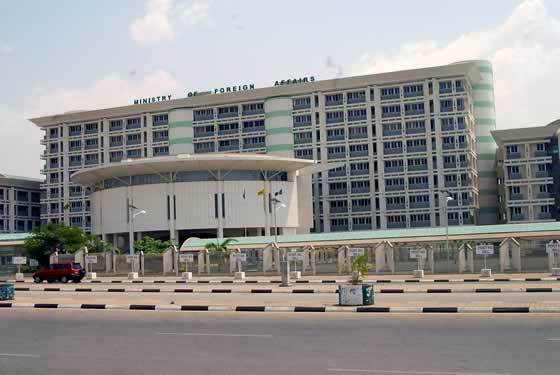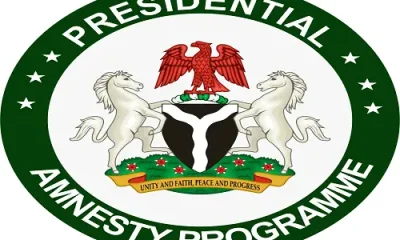Nigeria News
Embassies, Consulates Face Financial Crisis As FG Delays Funds

No fewer than 109 Nigerian Diplomatic Missions worldwide are currently facing financial challenges, as the Federal Government is yet to send their overhead vote for the second quarter of the year.
Naija News reports the overhead vote for the Nigerian foreign missions was supposed to have been paid since June. The Foreign Service officers included 97 Embassies and 12 Consulates all over the world.
Sources from some of the embassies revealed that many missions may not be able to meet their financial obligations to their staff members and local contractors in the coming weeks if the situation remains unchanged.
The sources told The Punch that various financial obligations, including electricity, water, and sanitation bills, were already piling up.
The platform reports that staff serving in Europe, Asia, and other parts of the world are reportedly sending distress messages to their colleagues at the ministry’s headquarters in Abuja.
One of the sources said, “Overhead allocation to missions that ought to have been used for settling various utility bills, chancery rent, staff accommodation, electricity, sanitation, and water bills have not been paid by the Federal Government.
“The vote meant for the second half of the year ought to have been paid since June. Many missions have sent dispatches to the ministry, but there was no response.”
Foreign Service officer (FPO) revealed that the FG had yet to pay the capital vote to his mission, noting that this had put the staff in a tight situation as they faced eviction from their landlords.
He explained that while some missions deal directly with the landlords, his mission preferred giving the money to the staff to pay their landlords.
The FSO, who spoke on condition of anonymity, said, “Staff accommodation rent and their children’s tuition were meant to be paid from the overhead vote, but this has not been done because the government has failed to release the money.
“Some of us had to borrow money from friends and families in Nigeria so that our landlords would not evict us. We pay rent monthly, so we had to deposit 12 cheques to cover one year, and the banks would credit the landlord monthly.
“But if you don’t have money in your account, the bank may report you to their regulatory agency because it is a criminal offence to issue a cheque without cash backing. Many of our staff members have been evicted for not paying their rent. It happened in Budapest, Hungary, in 2021 when some Nigerian staff members were evicted from their apartments for failing to pay their rent.
“There are cases where diplomats borrow money to settle school fees and rents to avoid eviction. Some borrow from their friends in Nigeria and also from the Nigerian community or the local churches they attend in their country of service.
“Some officials have returned to Nigeria, yet they have not been paid their rent. In some situations, the embassies pay directly to the landlords, and some landlords may evict the embassy staff for not paying. In most cases, people use their salaries to pay for accommodation to avoid any embarrassing action from their landlords.”
It was gathered that the MFA released $270,000 for personnel overhead to a mission in Asia from January to June, however, it was learned that $164,000 instead of $270, 000 was remitted to the mission for the second half of the year.
The shortfall was said to have been a 41 per cent reduction, however, the foreign affairs ministry did not give reasons for the shortfall, but there were suggestions that the government must have based the remittance on the current exchange rate pegged at about N900 per dollar.
An official of the ministry said, “The truth remains that Nigerian Missions are not properly funded, but even the gross inadequate funds provided in the 2023 Budget is now affected by the new exchange rate policy of floating the naira introduced by the Central Bank of Nigeria.”
A diplomat who pleaded anonymity explained how the remittance to the embassies.
He said, “Missions that received $590, 000 and $383, 000 personnel allocation for the first half of the year were given $353,000 and $252,000, respectively, as personnel vote for the second half of the year.
“With the prevailing situation, most embassies may not be able to pay salaries and entitlements for officers, locally recruited staff members, and contractors or meet other financial obligations such as payment of rent and school fees for children, electricity, water, telephone, and security bills if the government continues to withhold the overhead and capital allocations.
“The implication is that if nothing is urgently done to salvage the situation, staff members of the embassies and consulates abroad would suffer financial embarrassment, which would be inimical to the image of our country.”
Due to the inadequate overhead vote, most missions, it was gathered, usually divert the personnel vote to take care of staff accommodation and tuition for their children and wards.












